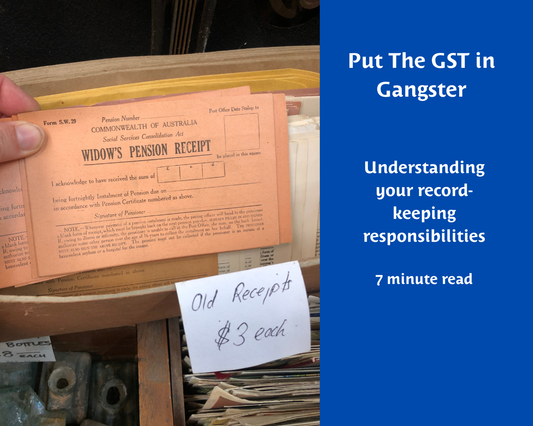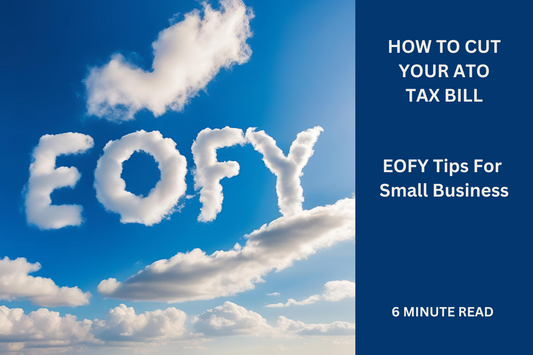Fringe Benefits Tax For Small Business
The end of the year is a time for gifts and gatherings!
In business, it’s a time to reward employees for their work throughout the year, and it can reap benefits in staff morale, team building and anecdotes that keep on giving for years to come!
But exactly how will you reward your employees? Will it be with gifts or a good time? Will you extend the graciousness to their plus ones? Will you entertain valued clients? Would a payday bonus be more appreciated?
As well as being guided by your budget, it’s savvy to consider the tax implications of the above. When the bottles of fizz have all been drained, and everyone goes home with rosy cheeks, how will you account for it all in your books?
This article will help you avoid compounding a champagne headache with a tax one!
What Is Fringe Benefits Tax?
Accounting for these fun times in your books centres around Fringe Benefits Tax (FBT). FBT is a tax paid by employers on certain benefits provided to their employees, their employees’ families or their employees' other associates. It was established to ensure that employers couldn’t provide non-salary benefits to employees without tax being paid on them.
Food, entertainment and gifts given to current, past or future employees and their associates can all be considered fringe benefits, depending on the value and circumstances.
You don’t need to be like Scrooge to avoid incurring FBT. It is possible to reward employees in ways that keep their benefits exempt from it (further details below). This not only reduces your financial FBT liability, but also saves you the time or fees involved in preparing and lodging an FBT return.
The only downside of keeping expenses FBT exempt is that it makes them not tax deductible and not eligible for GST credits. However, with the FBT tax rate being 47% of the taxable value of the benefits, the FBT liability may well result in a higher figure than that which a tax deduction and GST credits would provide.
To keep your Christmas splurges exempt from FBT, here are some options:
Bonuses
Paying an employee a Christmas bonus is a simple option. Your employee pays the tax on the bonus, so it doesn’t incur FBT.
Firstly, you need to set up a 'Bonuses and Commissions' pay type in your accounting software. The settings of this pay type need to reflect the ATO’s Schedule 5 tax table. Then, when processing the payment, select that pay type to ensure that the employee isn’t over-taxed for their bonus. Superannuation needs to be applied to the payment as well. We can help set you up for paying bonuses if you’d like a hand.
Also, it’s a good idea to send your employee a “Check this week’s payslip ;)” kind of message. If they’re not in the habit of checking their pay slips or bank transactions, they might not realise they’ve received a bonus. This happened to me! I only realised weeks later, and belatedly thanked the boss lady, hoping she hadn’t thought me ungrateful.
A Party On Your Business Premises
If your business holds a party on your business premises, on a working day, and only for your current employees, you won’t pay FBT on the food and drinks.
A Party Off Your Business Premises
If your business holds a party off your premises, you won’t pay FBT if the cost is less than $300 per person.
Inviting Associates Of Employees
If your business holds a party that includes associates of your employees (such as their family members or plus ones) you won’t pay FBT if the cost is less than $300 per person.
Inviting Clients
If your business holds a party that includes clients, you won't pay FBT for the costs relating to the clients, since your clients are not employees.
Gifts
If you give an employee a Christmas gift, you won't pay FBT if the value of the gift is less than $300.
Ooh La La - A Party AND A Gift!
If you hold a catered Christmas party on your premises, or hold a party off premises providing food and drinks to the value of less than $300 per person, and you also give your employees gifts to the value of less than $300 per gift, the party and gifts will both be exempt from FBT.
Pulling Out All The Stops
Feeling magnanimous? If you plan to reward your employees in ways beyond the examples above, talk with your bookkeeper or accountant beforehand. They’ll be able to advise you as to how much FBT you’ll likely need to pay. The ATO also has a detailed online guide: How fringe benefits tax works
As always, we’re happy to answer questions where we can, so feel free to email us at help@countingclouds.com.au




